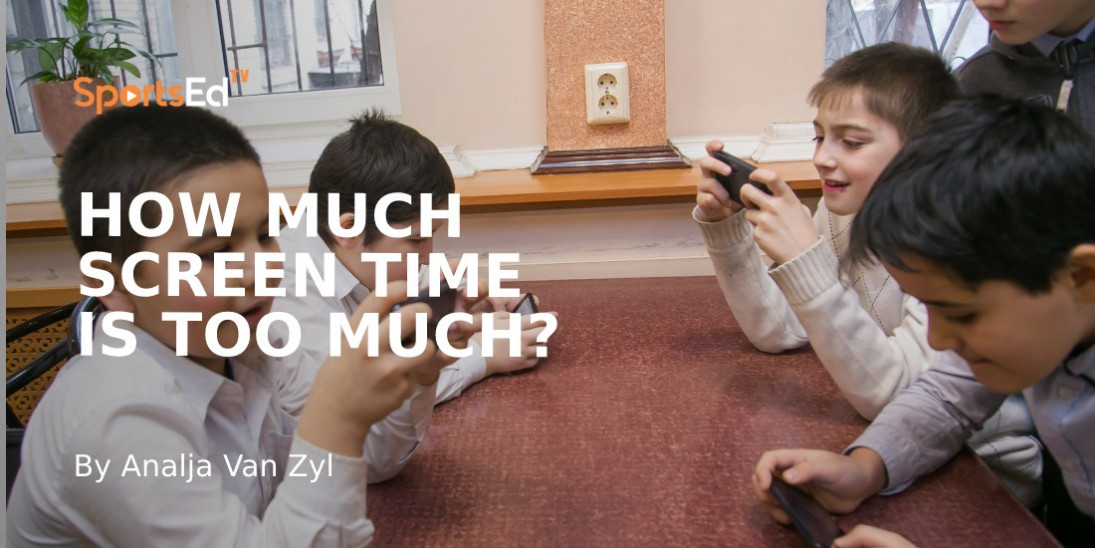Physical Education
Welcome and thanks for visiting...

Screen Time and Your Child's Development

All types of media including TV, computers, smartphones, and devices such as iPads, are inevitably part of our world. It influences everything in it, including the development of our children and their world. Although we cannot steer away from media completely with children, the American Academy of Pediatrics (AAP) encourages a healthy media development, which does not overrule your child’s development in all areas.
Guidelines for media usage:
Media usage for children younger than 2 years old:
- Media should be very limited and only when an adult is standing by to co-view, talk and teach. An example of this would be video-chatting with family members - such as FaceTime, Skype of WhatsApp video call.
- Other forms of media should be avoided.
This age is crucial for the sensory motor development, fine and gross motor development. It is vital that a child should interact with object and activities that promote this development. It could be an ‘easy-way-out option’ for parents to give their children an iPad, however this should be avoided, and rather give the child blocks/cups/buckets to stack on top of each other in order to learn this motor skill. Children should get to know their environment and explore in all forms that feeds their sensory development.
Media usage for children 18-24 months:
- This is a safe age to start introducing digital media.
- Media usage should be co-used with parent - try to avoid solo media usage.
Parents are encouraged to use the time of screen time with their child to develop skills. Watch educational programs together or play an educational game. Screen time should never replace actual play time. Play time should always come first and should consume the majority of the child’s awake time.
Media usage for children 2-5 years of age:
- Limit screen time to no more than 1 hour per day.
- Find other creative activities for your child to engage in that are healthy for their bodies and mind,
- Always choose media that is educationally interactive, non-violent, and prosocial.
- Co-view and co-play with your child during their screen time.
During this age group children have more mature minds, so well-designed educational programs do have benefits. Especially if your child is limited to only 1 hour per day, and the rest of their awake time is dedicated to play. This ‘routine’ can be very beneficial for your child.
Why should you limit the use of media for children?
Some harmful effects of media are as follow (and this is generally when screen time is overused):
- Not enough sleep: young children that are exposed to media (TV, computer, iPad etc.) in their bedroom, sleep less and have a more disturbed sleep at night. Even babies younger than two years old can be over stimulated, and thus struggle to fall asleep. This leads to them missing out on their precious sleep which is needed for growth and development.
- Delays in learning, developmental and social skills: During pre-infancy and pre-school years, if a child is exposed to too much screen-time, it could have a major influence of their development, and they could show signs of delays in attention, thinking, language and social skills. One of the major reasons for this is the isolated world of media, and not enough interaction with parents and family members.
- Obesity: Heavy media usage during preschool years is linked to weight gain and the risk of developing childhood obesity. This is naturally due to the fact that children who overuse media are less active with healthy, active, educational, and developmentally fit activities as well as physical play.
- Behavior problems: Violent content on TV and screens can have a direct influence on how the child ‘view’ the world and can contribute to behavior problems.
Encouraging children to engage in a physical active lifestyle from pre- infancy years, with strict guidelines and limitation to screen-time could have a great influence on their development. Screen-time, apps and media channels can never fully replace physical alertness and engagement, and thus being physical active is still the best for your child’s gross and fine development, sensory development, social skills and developing optimal health.





